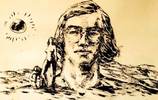еҲҳжҙӘеҪ¬: гҖҠиҜ—дәәгҖҒиҜ—жӯҢе’ҢиҜ—еӯҰгҖӢ
еҪ“иҜ—дәәйҒҮи§ҒзҲұзҘһ-1452 12/12 19739

еңЁдёӯеӣҪж—¶й—ҙд№ӢеӨ–еҶҷжұүиҜ—, еңЁејӮд№Ўе»ә家еӣӯпјҢеҪ“иҜ—дәәеңЁејӮеӣҪзҡ„зІҫзҘһзҺӢеӣҪйҮҢзј”йҖ дәҶдёҖдёӘдёӯеӣҪ, иҜ—дәәиҮӘе·ұдҫҝжҲҗдәҶз«Ӣжі•иҖ…е’ҢеҗӣзҺӢгҖӮиҜ—дәәиҮӘе·ұе°ұжҳҜдёҖдёӘдёӯеӣҪгҖӮеңЁиҝҷдёӘеӣҪеәҰйҮҢ, иҜ—дәәеҸҜд»Ҙз»қеҜ№ең°дҝқжҢҒиҮӘе·ұзҡ„дёӘжҖ§пјҢд»ҘеҸҠз”ұжӯӨдёәеҹәзЎҖзҡ„гҖҒеҸҜд»ҘжҠөеҫЎзҒөйӯӮи…җиҙҘзҡ„дёӘдәәдё»д№үгҖӮдёӯеӣҪйҡҸиҜ—дәәжөҒдәЎгҖӮжҲ‘дёӘдәәжөҒдәЎзҡ„дёҖдёӘе‘Ёжңҹз»“жқҹгҖӮиҜ—дәәжҳҜиҜӯиЁҖзҡ„д»Ҷдәә, жӣҙжҳҜиҜ—жӯҢиүәжңҜзҡ„еҘҙйҡ¶гҖӮд»–дёҚжңҹжңӣеҫ—еҲ°д»Җд№Ҳ, иҖҢжҳҜе°Ҷд»–иҮӘе·ұзҡ„е…ЁйғЁдәӨз»ҷиҜ—жӯҢгҖӮиҜ—дәәзҡ„ж”ҝжІ»д»»еҠЎжҳҜз»ҙжҠӨиҮӘе·ұиҜӯиЁҖзҡ„зҘһеңЈжҖ§гҖӮжң¬дё–зәӘд»ҘжқҘ,жұүиҜӯиЁҖдёӯеҸ‘з”ҹдәҶеҮ ж¬ЎеҗҚжӣ°йқ©е‘Ҫзҡ„жө©еҠ«гҖӮжұүиҜӯиў«ж»Ҙз”ЁгҖҒиҷҗеҫ…еҫ—ж—¶й—ҙеӨӘд№…,еӣ жӯӨиҜ—дәәеә”жҳҜиҮӘе·ұжҜҚиҜӯзҡ„дёҙеәҠеҢ»з”ҹгҖӮдёҖдёӘеҪ“д»ЈдёӯеӣҪиҜ—дәәзҡ„дҪҝе‘ҪжҳҜеңЁдёӯеӣҪеҸӨе…ёиҜ—жӯҢзҡ„иҫүз…ҢдёҺзҺ°д»ЈжұүиҜӯзҡ„еәҹеўҹд№Ӣй—ҙжһ¶иө·дёҖеә§еҺҶеҸІзҡ„жЎҘжўҒгҖӮиҝҷд№ҹжҳҜжұүиҜӯиҜ—жӯҢжң¬иә«еңЁз»қжңӣдёӯзҡ„еёҢжңӣгҖӮ
иҜ—дәәеңЁдё“еҲ¶еӣҪ家йҮҢеҮӯеҶҷиҜ—еҸҜд»Ҙиў«жҚ§дёәж°‘ж—ҸиӢұйӣ„пјҢиҝҷдёҚжҳҜиҜ—дәәжң¬жқҘзҡ„и§’иүІгҖӮеёғзҪ—иҢЁеҹә (JOSEPH BRODSKY)еңЁи®әеҸҠиҜ—дәәж—¶иҜҙ: вҖңиҜ—дәәжҳҜиҮӘе·ұзҡ„зҘһиҜқдёӯзҡ„иӢұйӣ„(жҲ–дё»и§’)вҖқгҖӮ
жҲ‘们йғҪдёәиҜҚиҜӯжүҖеЎ‘йҖ , 并被иҜҚиҜӯеҶҷеңЁиҝҷдёӘдё–з•ҢдёҠгҖӮдёҖдёӘиҜҚиҜӯеҸҜд»ҘжҳҜдёҖдёӘдё–з•ҢгҖӮеҒҡдёәдёҖдёӘиҜ—дәәпјҢд»–ж—ўжҳҜеҲӣйҖ иҜҚиҜӯзҡ„дё»дҪ“, еҗҢж—¶д»–д№ҹжҳҜиў«иҜҚиҜӯеҲӣйҖ зҡ„е®ўдҪ“гҖӮжҠұзқҖиҝҷж ·зҡ„и°ҰеҚ‘е’ҢдәәжҖ§зҡ„зІҫзҘһ, жҲ‘们еҶҷдҪң并дәӢеҘүиҜӯиЁҖгҖӮдҪҝиҝҷдёӘдё–з•ҢзҡҲдҫқиҜ—жҳҜжҜҸдёҖдёӘиҜ—дәәзҡ„дҪҝе‘Ҫ, йӮЈж—¶иҜ—жӯҢзҡ„жӯЈд№ү(жғ©жҒ¶жү¬е–„)еҫ—д»Ҙдјёеј гҖӮжҲ‘жӣҫз»ҸиҜҙиҝҮпјҢжҠөжҠ—дё“еҲ¶е’ҢйӮӘжҒ¶пјҢжҲ‘дҪҝз”Ёзҡ„дёҚжҳҜжӯҰеҷЁ, иҖҢжҳҜзҫҺгҖӮ
1997е№ҙ
иӢұиҜ‘зүҲпјҡ
ON THE POET, POETRY AND POETICS
гҖҖ
Writing poetry is the beginning of internal exile. The spiritual exile of poetry writing eventually leads to physical exile. The poet is either devoured by exile вҖ“ or its accomplice, death вҖ“ or else becomes stronger.The poetвҖҷs good fortune depends on whether he can accept the fate of exile without resentment. This is what Confucius meant by "know your destiny." A poet can turn solitude into a personal luxury, or poverty into a boundary stone from which to observe the world of ordinary people. His poverty makes him aware of his plenty at the same time as it embarrasses him in reality; in a more civilized living environment, the poet can escape poverty through his creative labor. As loneliness, poverty, illness and the passage of time accelerate the poetвҖҷs advancement to the brink of death, the last words to gurgle in his throat are gratitude and praise. Writing Chinese poetry in a different time zone, making a foreign country a homeland; when the poet in a foreign land creates a China in the kingdom of his mind, he becomes its legislator and king.The poet himself is a China. In this world the poet can decisively preserve his personality, and make individualism the basis on which he resists the corruption of his soul. China follows the poet into exile. My own cycle of exile reaches an end.
The poet is the servant of language, and even more the slave of the art of poetry. He hopes for nothing but to give his all to poetry.The political task of a poet is to defend the sacredness of his language. Since the beginning of the 1900s, a number of disasters have befallen the Chinese language under the name of "revolution." With the Chinese language abused and misused for too long, the poet should be a clinician for this mother tongue.The mission of the contemporary Chinese poet is to build a historical bridge between the glory of Chinese classical poetry and the ruins of modern Chinese language. This is the hope of Chinese poetry in its despair. In autocratic countries, a poet can be praised as a national hero. I disdain this role. As Joseph Brodsky says, "A poet is a hero in his own myth."
We are all molded by words, and are written on the world by words..A word can be a world. A poet is both the subject who creates words and the object created by words. In a spirit of humility and humanity,we write and serve the language. It is every poetвҖҷs mission to convert this world to poetry; until then, poetic justice can be done. I have said before, what I use to resist tyranny and evil is not a weapon, but beauty.
September 1997
Translated by Liu Hongbin with the assistance of Stacy Mosher and Perry Link
BY LIU HONGBIN
пјҠйҷ„жіЁпјҡ
еҲҳжҙӘеҪ¬зҡ„иҜ—и®әиў«иӢұеӣҪгҖҠеҚ«жҠҘгҖӢеҸ‘иЎЁзҡ„гҖҠдёӯеӣҪзҡ„и¶…зә§иҜ—жӯҢгҖӢ
http://www.theguardian.com/
йҰҷжёҜдёӯж–ҮеӨ§еӯҰ收и—ҸжӯӨж–ҮзЁҝпјҢеҸҜдҫӣиҜ»иҖ…жҹҘйҳ…гҖӮ
http://archspace.lib.cuhk.edu.
http://fixcentenario.blogspot.
гҖҖ
зәҰзҝ°.йҳҝд»ҖдјҜз‘һи®әеҲҳжҙӘеҪ¬
еҰӮжһңжҙӘеҪ¬жөҒдәЎзҡ„иҜӯиЁҖиғҪж•ҷеҜјжҲ‘们дёҖ件дәӢжғ…зҡ„иҜқпјҢ йӮЈе°ұжҳҜзӣёдҝЎиҮӘз”ұиғҪпјҲе°Ҷдјҡпјүи¶…и¶ҠдёҖдёӘе……ж»ЎеҒҸи§Ғзҡ„ж”ҝдҪ“пјҢ
еҲҳжҙӘеҪ¬жҳҜд»ҠеӨ©д»»дҪ•иҜӯиЁҖеҶҷдҪңдёӯжңҖдјҳз§Җзҡ„иҜ—дәәд№ӢдёҖгҖӮ
If HongbinвҖҷs language of exile can teach us one thing, it is that belief in freedom can (and will) transcend a regime of prejudice вҖ” even if it comes from within.
Liu Hongbin is one of the finest poets writing in any language today.
зәҰзҝ°.йҳҝд»ҖдјҜз‘һ (John Ashbery 1927--) зҫҺеӣҪеҪ“д»ЈжңҖдјҳз§Җзҡ„иҜ—дәәпјҢ жӣҫиҺ·иҝҮзҫҺеӣҪжүҖжңүзҡ„ж–ҮеӯҰеӨ§еҘ–пјҢеҢ…жӢ¬жҷ®еҲ©зӯ–, е…ЁеӣҪеӣҫд№ҰеҘ–, йәҰе…Ӣйҳҝз‘ҹеҘ–гҖӮ
пҪһпҪһпҪһгҖҠиҜ—дәәеҲҳжҙӘеҪ¬иҜ—жӯҢжј«и°Ҳзі»еҲ—гҖӢ



